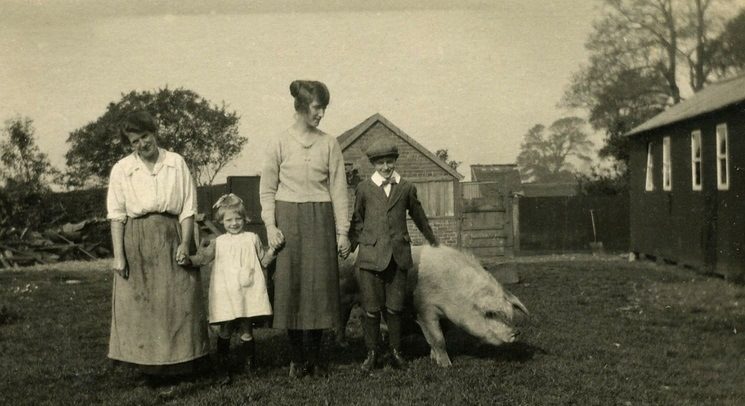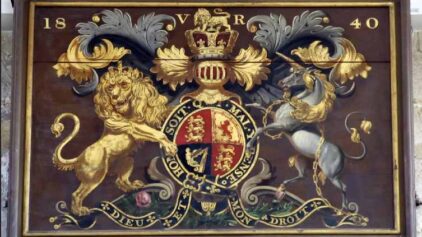My surname is Eisenbach. It comes from Germany and I believe at one time it was Von Eisenbach but I’ve been told they sold the Von. Don’t know how you do that but that’s what I’ve heard.
Surnames: Different countries, different traditions
- By Esther


 Surnames or family names are the part of a person’s name that is passed down through families, or given according to law or custom. Many cultures have different customs for how names are passed from generation to generation.
Surnames or family names are the part of a person’s name that is passed down through families, or given according to law or custom. Many cultures have different customs for how names are passed from generation to generation.
Surnames originate from the relatively “recent” medieval custom of bynames, or names given to differentiate people.
There were four different types of bynames typically given:
• Patronymic – describing you as your father’s child
• Locative – describing where you live, were born, your place of work, or what land you own
• Occupational status – describing your occupation or rank
• Nicknames – could be many things, such as a trait, or common tool that you used
During the Middle Ages, bynames became less common and inherited surnames became the norm throughout Europe and western culture.
In Greece and Slavic countries, males and females are given different variations of the same family name.
According to the European tradition, children took their father’s surname. In recent years, this tradition has changed , as the trend has been towards women retaining maiden names and not taking a husband’s family name. Children are not automatically given their father’s surname, and they take their mother’s or father’s surname or a combination of both those surnames.
According to a United States Census Bureau study, the most common last name in 2000 was Smith, held by about 2.3 million people, or almost 1% of the population. An additional six names were used by over 1 million people each (Johnson, Williams, Brown, Jones, Miller and Davis). These top seven names are about 4% of the US population, or one of every 25 people.
While, to most English speakers, Smith sounds like a common last name, in Vietnam, according to tradition, there are only 100 surnames!
A study conducted in Bac-ninh province of North Vietnam estimated that some 40% of Vietnamese people bear the surname Nguyen.
Also see this interesting map of the most common surnames in Europe.
Frequently asked questions about surnames
Why do naming traditions vary between countries?
Naming customs reflect cultural, legal, and historical influences — such as patronymic systems, religious conventions, colonial impact, and government mandates — that differ widely around the world.
How do Scandinavian patronymics work?
In countries like Iceland, Sweden, and Norway, surnames were traditionally formed by adding “-son” or “-dóttir” to the father’s given name. For example, Jón’s son might be named Ólafur Jónsson, meaning “Ólafur, son of Jón.”
What are matronymic and patronymic naming systems?
A patronymic surname is derived from the father’s name (e.g., Johnson), while a matronymic surname comes from the mother’s name. Both reflect parental lineage instead of fixed family names.
How do Spanish and Portuguese double surnames work?
In Spanish and Portuguese cultures, individuals typically have two surnames: the first from their father and the second from their mother. This honors both sides of the family and remains the legal naming standard.
Are surname traditions changing today?
Yes — modern practices often blend tradition and flexibility. Couples might hyphenate both names, choose either parent’s surname for the child, or create entirely new combinations, reflecting evolving ideas about identity and equality.
How does this affect genealogical research?
Understanding different naming systems is crucial in genealogy. It helps trace ancestors across cultures by recognizing when surnames change each generation, or when they reflect parental names rather than fixed family names.
Where does your surname come from? Is it a common name? Let us know in the comments below.










Peggy Maddox Wiseman
December 13, 2013
My last name is Maddox. I have been told it is Irish. My father’s forefather did go to Canada from Englan in 1837